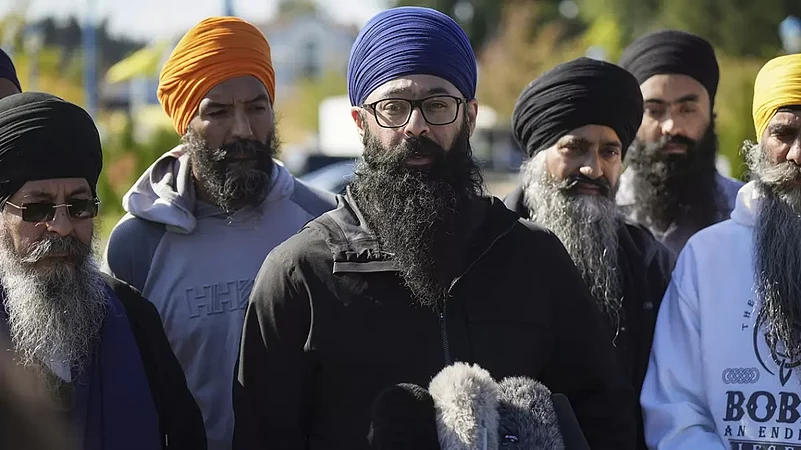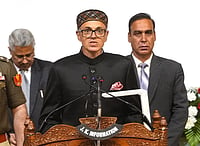The sudden crisis in Indo-Canadian relations has filled the atmosphere in Punjab with worry and sparked off a wave of anxiety in the prosperous state, which sends lakhs of youths to study abroad and also has non-resident Indian (NRI) families, settled in the major towns in Canada.
How Fallout Of The Indo-Canadian Stand-off Is Impacting The Punjabi Diaspora
The diplomatic crisis between India and Canada is causing worry and anxiety among families in Punjab

Children’s well-being and future prospects abroad―especially in the light of recent concerns like hate crimes and visa denials―have started affecting both students and the wider Punjabi diaspora because of strained relations between the two countries, just days after India hosted the G20 Summit, which was attended by Canadian Prime Minister Justin Trudeau.
“Threats are being issued by pro-Khalistan activists like Gurpatwant Singh Pannun, president of so-called ‘Sikhs for Justice’ organisation, asking Hindu-Canadians to leave Canada and go back to India, which is certainly a worrying factor,” says Arshjot Bajwa, a college teacher in Ludhiana, who has sent her daughter and a nephew on a ‘study permit’ less than a year ago.
“Though the kids tell me that things are fine in Canadian cities and people don’t give credence to social media posts being circulated in India, yet the parents and families can’t sleep and relax as if nothing will happen,” she says.
The situation took a dramatic turn after Canada expelled a high-ranking Indian diplomat after Trudeau’s statement in the Canadian Parliament, pointing finger at the alleged Indian government’s “potential link” in the killing of Khalistani separatist leader Hardeep Singh Nijjar in June. The Indian government responded by expelling Canadian diplomats and suspending visa facilities.
This is also a major blow to Canadian educational institutions, which rely heavily on international students―almost 40 per cent are from India.
“Parents are tense over these developments. There is panic among those who were in the process of going to Canada on students’ visas and also NRIs who had planned their weddings in India in November-December. These two months are very crucial for the families to visit home and solemnise marriages of their sons and daughters as per the Indian customs,” says Jagdeep Singh, an education consultant and owner of Cambridge Academy in Amritsar.
There are a large number of Persons of Indian Origin (PIO) in Canada. Many visit India every year to meet their families, and elderly parents or to attend social engagements, with some even having businesses in the country. “Punjab-based NRIs visit their ancestral homes during the festive season,” says D S Rataul, a media professional. As per his estimates, around 1.75 lakh students go to Canada from Punjab every year on a study visa, which is almost 41 per cent of five lakhs going from India.
After three years of studying in Canada, these youths get work permits, and eventually a route to become permanent residents (PRs).
After India issued an advisory to its citizens to “exercise utmost caution” in Canada amid the escalation of the diplomatic row, the families are concerned about the well-being of their kin and others. “We have been concerned about the well-being of both my children who are studying in Canada,” says Vinod Sharma, a resident of Gurdaspur village. Panic is also visible among those youths who are appearing for the International English Language Testing System (IELTS) and are in the process for applying to various colleges and universities in Canada.
There is another section of youths who sell their lands and invest that money to fly to Canada for business or for jobs as an alternative to unemployment and to escape the drug menace in Punjab.
Yet, travel and visa agents are promising aspirants that things will get better soon and the current crisis will blow over as Canada also can’t afford to prolong the situation. Canada can’t ignore such a substantial source of income―the educational institutions will be hit badly. Not only Punjab, but people from states like Gujarat and Haryana also go to Canada each year.
“I spoke to my consultant, who is assisting me in gaining admission to a Canadian college. He tells me not to panic and that it is a temporary phase,” says Harman Brar, a student from Moga in Punjab.
Aspirants are also being told that some countries, other than Canada, maybe fuelling social media with posts to discredit Canada, as reports from several cities say that the atmosphere is quite normal.
Harjinder Singh Dhami, president of the Shiromani Gurdwara Parbandhak Committee (SGPC), has also appealed to the Indian government to resolve the issues and find an early solution to the stalemate as it will adversely hit the Punjab economy.
Canadian Member of Parliament Chandra Arya issued a statement asking the Hindu-Canadians to stay calm, but vigilant.
“Please report any incident of Hinduphobia to your local law enforcement agencies,” he said.
Meanwhile, the chief of the Shiromani Akali Dal, Sukhbir Badal, has admitted uncertainty and anxiety among Punjabis after the escalation of the Indo-Canadian diplomatic tensions. “We are deeply concerned over the indefinite suspension of visa services for Canadian nationals to India. It affects lakhs of Punjabis residing as overseas nationals of Indian origin or as students in that country, he said.
Not just Punjab, families in Gujarat, another state which sends students to Canada on study visas, are also worried. “My son is scheduled to fly to Canada on a study visa in October 2023, but watching media reports, I really feel worried even though our agent says ‘nothing to worry’,” says Ahmedabad-based businessman Bansi Lal Dave.
- Previous Story
 US Charges Indian RAW Official In Connection With Pannun's Assassination Plot | Details
US Charges Indian RAW Official In Connection With Pannun's Assassination Plot | Details - Next Story




















